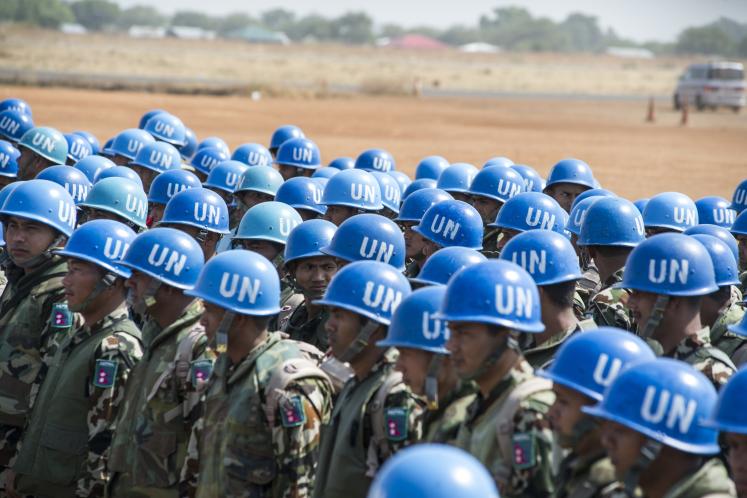This report, authored by researchers from UNU-CPR, the Kofi Annan International Peacekeeping Training Centre, the Center for Civilians in Conflict, and the Stockholm International Peace Research Institute, critically examines the contributions of the UN’s human rights work within a wide range of UN peace operations.
Studying peacekeeping missions, special political missions, and regional prevention offices, the report asks three core questions: How does the UN’s human rights engagement contribute to the overall impact of UN peace operations, including the protection of civilians? How do UN peace operations themselves contribute to human rights outcomes? and What lessons can be drawn by comparing different UN peace operations in terms of building better synergies between human rights-focused activities and the other work of missions?
It offers a comparative, empirically backed assessment of the ways UN peace operation efforts to advance human rights contribute to mission effectiveness and broader mission objectives.
The report is a response to the fact that today’s conflicts are exacerbated and prolonged by recurring instances of exclusion, discrimination, and the infringement of human rights, all occurring alongside elevated levels of corruption and a widespread decline in the enforcement of the rule of law and accountability.
The UN system has acknowledged that effectively addressing underlying grievances, rights violations, and different forms of exclusion are fundamental to ending cycles of violence and transitioning to sustained peace. However, although there has been growing awareness of the links between human rights and conflict management, there has also been rising pushback on human rights language in peace operation mandates, and the UN’s prioritization of human rights can present challenges for UN peace operations, which rely on host state consent for their operations and are often involved in delicate political processes.
Key findings of the report include:
- UN peace operation efforts to advance human rights contribute to a reduction in violence levels and to longer-term sustainable peace. While this may not always be direct, there is evidence that human rights efforts have improved early warning, protection of civilians, and peacebuilding outcomes.
- The positive benefits of human rights work accrue across different kinds of missions and at different moments in conflicts. Whether deployed at the earliest onset of violent conflict or well after the height of hostilities, human rights efforts within UN missions have a unique and tangible value to add.
- Human rights-focused presences may be some of the most crucial bridges to prevent lapse into war – particularly as larger missions continue or begin their transitions out of some of the most conflict-affected settings.
- Peace operations need to be capacitated with robust human rights mandates and components and strong support from the broader UN architecture and Member States - if peace operations are to become more effective presences on the ground, capable of addressing both the immediate causes of violence and the deeper drivers of instability.
Access ‘UN Peace Operations and Human Rights: A Thematic Study’ here.
Suggested citation: Charles Hunt, Adam Day, Emma Bapt, Fiifi Edu-Afful, Abigail Gérard-Baldé, Hafsa Maalim, Wendy MacClinchy, Nadia Nata and Claudia Pfeifer Cruz. UN Peace Operations and Human Rights: A Thematic Study : UNU-CPR, 2024.


